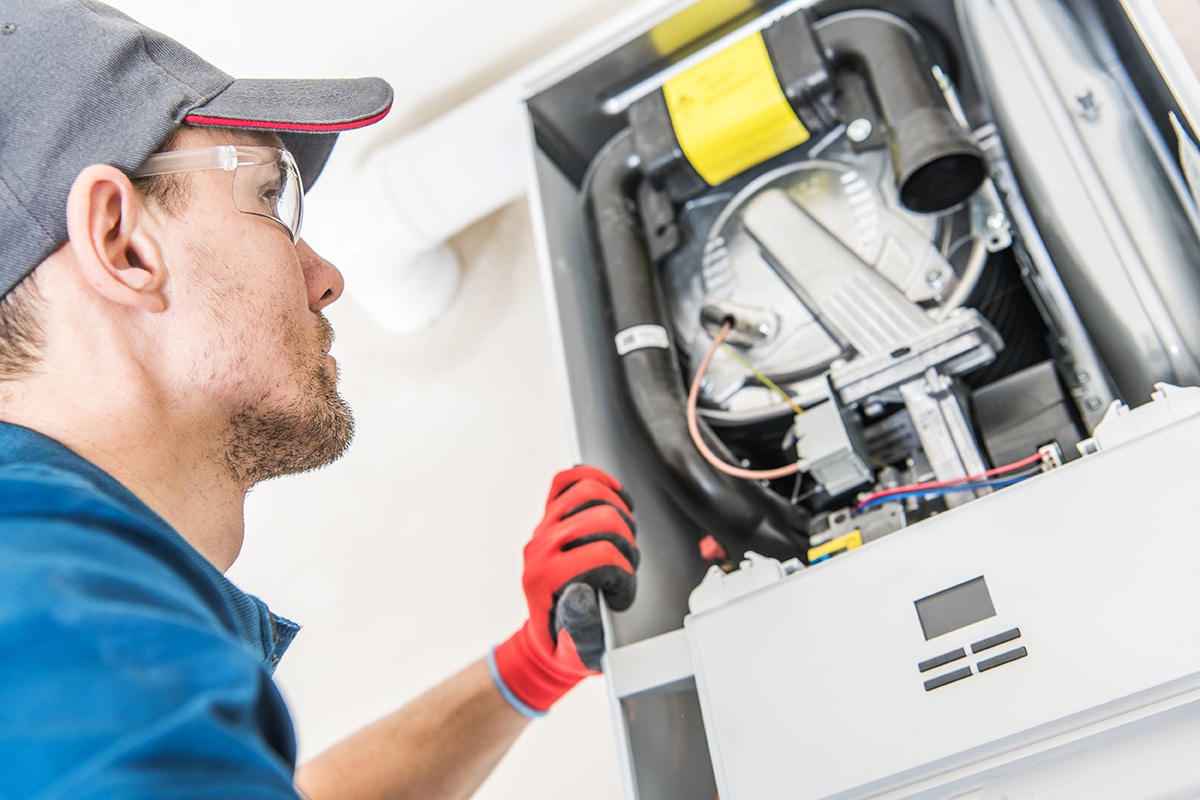Should I Smell Gas Near my Furnace?
You appreciate your gas furnace during the long, cold winters in the Tri-Cities as it keeps your home warm and comfortable. It is an ideal way to heat your living spaces – unless you start to smell gas!
Your sense of smell is one of the best diagnostic tools for determining if something might be wrong with your furnace. Although your nose can’t detect natural gas, as it is invisible and odorless, there are additives that are added to the gas used in your furnace that you would be able to smell if there was a leak.
Utility companies routinely mix in the chemical mercaptan to your furnace so you will be able to tell when your furnace is not operating normally. Mercaptan is sulfur-based, and it produces a smell that people generally associate with rotten eggs. Harmless to humans and pets, mercaptan gives off an unsavory smell that is a potential warning sign of a gas leakage, which means you should quickly evacuate.
Possible Causes for Smelling Gas Near Your Furnace
Short Cycling
Gas leaks in home furnaces are uncommon, but that doesn’t mean they don’t happen.
With your gas furnace, you can expect a regular emission of gas. The typical furnace cycle is 10 to 15 minutes, and it could run twice or three times in an hour to keep the desired temperature in your home, depending on how cold it is outside.
Some people are more sensitive to the mercaptan in their furnaces than others, but the smell will be fleeting even to a sensitive nose. Be aware that a regular emission could be a problem if the furnace is short cycling. This would indicate a malfunction that calls for a maintenance service at the earliest possible date.
However, if you notice a rotten-egg smell near the furnace, chances are it is a gas leak, especially if the odor persists well after the furnace starts up. You could also suspect a gas leak if you detect a methane smell when the furnace is not in use at the time.
When you smell a gas leak, that is when you would want to evacuate your house immediately. Then, call an HVAC technician to diagnose and repair your gas furnace.
If you suspect you have a gas leak, and you think it could be dangerous, you might consider turning off the valve to the gas source, and opening nearby windows. Then proceed to leave your home and call the fire department. You will also want to contact the gas company.
In the meantime, if you have determined that you do have a gas leak, you need to decide whether to leave your home right away or not. You should depart your home if you think there is an imminent danger of combustion. If the danger of combustion is not immediate, then turn off the valve to the gas source, and open nearby windows. Then you should leave your home and call your local fire department. Afterward, call your gas company.
Valve or Gas Leakage
Natural gas is distributed into the furnace through gas lines. The gas valve controls the gas flow into the furnace through gas lines. If a gas line or valve leaks, you will detect a pungent gas smell near the furnace. Gas lines leak as the result of age, improper installation, and accidental damage.
Again, you should call an HVAC professional to examine and repair your furnace whenever you smell gas around the furnace, and evacuate from the gas source.
Look to Apollo Heating and Air Conditioning for Expert Furnace Installs & Service!
Apollo Heating & Air Conditioning is the Northwest leading provider for heating service for homes and businesses in the Tri-Cities. We not only evaluate and help you control the comfort and quality of your air, we can also offer solutions for managing your energy costs.
At Apollo Heating & Air Conditioning, we understand that the function of your heating system is a high priority. That is why we are committed to exceptional service and repair of your HVAC furnace to ensure it works flawlessly this winter.
Learn more by contacting Apollo Heating and Air Conditioning! Call us at (509) 396-COLD (2653).



